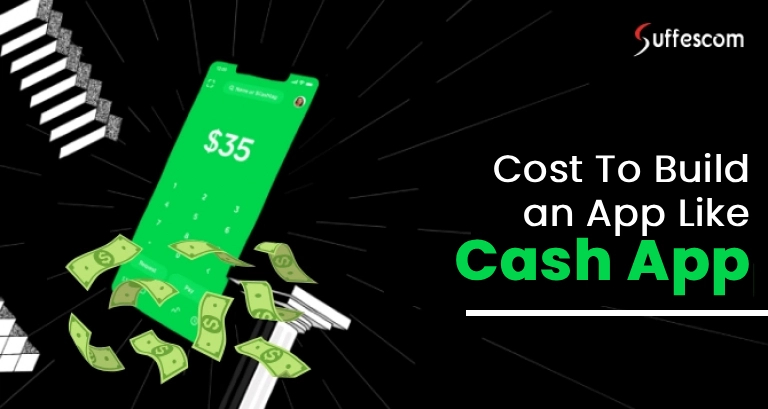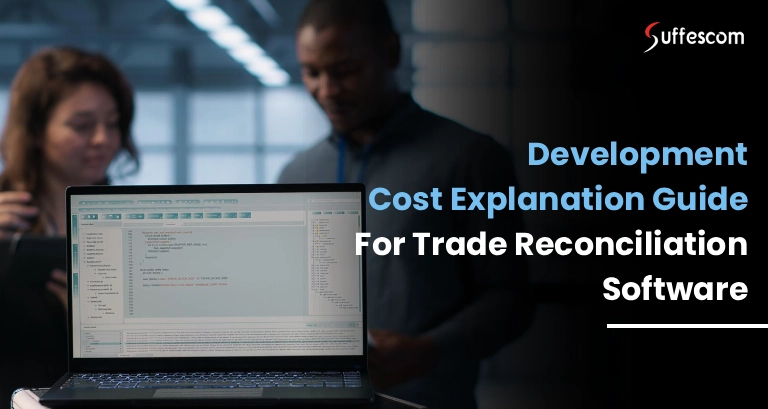How Much Does It Cost To Build an App Like Cash App?

In a time when digital wallets reign supreme, the Cash app has revolutionized how millions of people send, spend, and save money with a swipe of their finger. Its minimalist design, rapid peer-to-peer transactions, and cutting-edge features like cryptocurrency trading and instant cash cards have brought it into every home.
For businesses, creating a Cash app like app is not merely mimicking a success story—it's about grabbing a golden opportunity to ride the booming mobile payment industry. As an entrepreneur, investing in a custom cash app clone will be fruitful if you want to be on the list of big fintech companies.
The average cash app development cost ranges from $5,000 to $30,000 based on certain factors. Leverage our cash app like solutions and build an innovative platform with the original app's core functionalities, helping manage, invest, and transfer money.
Build Your P2P Payment App At Affordable Prices!
Factors Affecting The Cash App Clone Development Cost
CashApp like app has all the necessary functionalities that the original app has. Considering the technicalities and integrations involved, a wide range of factors impact the overall cost of the Cash App platform.
1. App Complexity
The size of the app and the number of features added are the strongest factors driving mobile app development costs. A cashApp like app can vary from a basic MVP app development to a full-fledged application with sophisticated features.
| Cash Delivery App Type | Cash App Development Cost |
| MVP | $5000 - $15,000 |
| Full-fledged | $15,000 - $30,000 |
2. Core Feature Set
1. P2P Money Transfers
This feature allows users to instantly and safely send and receive money with secure payment gateway integration and transaction processing. The P2P payment cash app cost comes with advanced functionalities that likely increase the cost.
2. Transaction History
Users view their transactions in real time and receive push notifications about payment confirmation or security issues. This involves heavy backend setup and API integrations.
3. Cryptocurrency Trading
It is one of the advanced features that allows buying/selling of Bitcoin, thereby necessitating crypto exchanges and real-time market data APIs integration, which is quite costly.
4. International Transfers & Currency Conversion
Supports multi-currency transactions using real-time exchange rate APIs and observing international financial regulations, adding sophistication.
5. QR Code Payments
Enables users to pay the amount just by simply scanning QR codes, requiring integration with camera functionalities and payment APIs.
6. Split Payments
Provides Support for features such as cost-splitting for joint transactions, which increases UI/UX and backend complexity and results in major expense.
3. Platform Choice
Another factor that significantly impacts the cash app development cost is the choice of platform. It includes building native apps with different codebases for iOS and Android. They have undoubtedly shown increased performance, but the development time and cost are massive.
In case of cross-platform development, a single code base is used using React Native and Flutter, which is cost-effective but is less performance-driven. The next line is the web apps and hybrid apps, which require additional front-end and backend work.
4. Design and User Experience
A user-friendly and easily navigable interface gains maximum traction and allows multiple users to manage the financial transactions. Minimalistic design, straightforward menus, sliders, buttons, and interactive elements require expertise from senior designers who charge higher rates.
5. Development Team and Location
Team composition and geo-location are significant factors contributing to the development of cash app clone cost. The larger the size of the team, the more roles are needed, such as business analysts, UI/UX designers, developers, testers, project managers, etc. In the case of MVP, a smaller team is required compared to building a full-fledged app. Also, the location-based hourly rates differ, making a remarkable impact on the budget. Here, we have illustrated it with more clarity.
6. Security and Compliance
Robust security features are required to develop a mobile payment app supporting multiple currencies. The app needs to handle sensitive data and perform safer transactions, which is possible with the help of implementing advanced encryption protocols, multi-factor authentication, PCI DSS Compliance, etc. As far as compliance is concerned, the requisite user identity verification, like KYC/AML regulation, along with adherence to legal entities, is met.
7. Development Process
| Stage | Description | Cash App Clone App Cost |
| Requirement Analysis | Market research & Regulatory Compliance | No charges |
| UI/UX Design | Creating Wireframes & Prototypes | $500 - $3000 |
| Development | Handling Frontend & Backend Activities with feature integration | $3000 - $7000 |
| Testing | Quality testing techniques to remove bugs and errors | $2000 - $3000 |
| Deployment & Launch | App store submission, cloud server setup | $1000 - $1000 |
| Maintenance | Feature updates, security patches | $400-$1000 |
Strategies To Adopt To Reduce Cash App Clone Cost
The pivotal thing involved in the P2P payment app needs optimized strategies and a clear roadmap that streamlines operations effectively without hampering the performance at any level. We have mentioned the strategies below to lower the development charges.
Estimated Cost of Creating Cash App Clone: One Click Away
1. Adopt Agile Development Methodology
Using Agile methodologies helps prioritizes iterative progress, allowing flexibility to adjust features based on budget and feedback. Focusing on high-priority features in each sprint and enabling early issue identification reduces the cost of a cash app clone. This helps with budget reallocation in critical areas based on user or market feedback.
2. Cost-Effective Third-Party Services Integration
Choosing affordable third-party money transfer app services for payment processing, KYC, and notifications minimizes integration and subscription costs. This helps lower the expenses for premium APIs or services with high transaction fees. It also avoids custom development for functionalities available via third-party tools.
3. Cross-Platform Development Frameworks
Planning for cost-effective maintenance from the start minimizes long-term expenses. This reflects in adopting cross-platform frameworks, simplifying the codebase and reducing bug-fixing and update efforts. Moreover, it uses automated testing to catch issues early, lowering QA costs.
4. Prioritize Security Without Over-Engineering
Security is critical for a fintech app, but focusing on essential measures avoids unnecessary expenses. The thing is to implement only the required security features for an MVP, deferring advanced measures to later phases. Also, using standard protocols and tools instead of custom solutions reduces cash app solutions cost.
5. Leveraging Pre-Built Clone Scripts
A pre-built CashApp script provides a customizable foundation, significantly lowering development time and costs. Clone scripts include core functionalities, reducing coding from scratch. Eventually, this shortens the development timeline to weeks instead of months. The personalization is only required for branding, UI, and specific features, which is less expensive than full development.
Final Words!!
Cash app development is a great business idea because of its unmatched convenience. The user experience involves instant money transfer from contactless payments to QR codes. Moreover, it has outsmarted traditional banking, which would take a couple of days for money transfer.
Furthermore, hiring a development agency with the expertise to build mobile payment apps is essential, keeping in mind the advanced tech stacks, security attributes, and platform selection that help with cost-effective budgeting.
If you are searching for a desired mobile app development company in USA, join hands with suffescom and achieve remarkable business results.
FAQs
1. How much does it cost to build a cash app?
The cash app like platform development cost ranges from $10000 to $30000, depending on the complexities involved.
2. How long does it take to develop a cash app clone?
It takes 9 - 10 weeks to build the cash app clone, depending on parameters like the developer's location, necessary integrations, and more.
3. How can businesses generate revenue with a Cash app clone?
The various monetization strategies include transaction fees, subscription plans, currency conversion fees, merchant fees, etc.
4. What business opportunities does a cash app clone hold?
Businesses can earn massive revenue, enhance user engagement, make quick market entry, improve their customer experience, and more.
5. How to choose the best Cash App-like platform development company?
Perform extensive research, check on the reputable platforms, and verify the testimonials and portfolio before hiring a development firm for your business.







